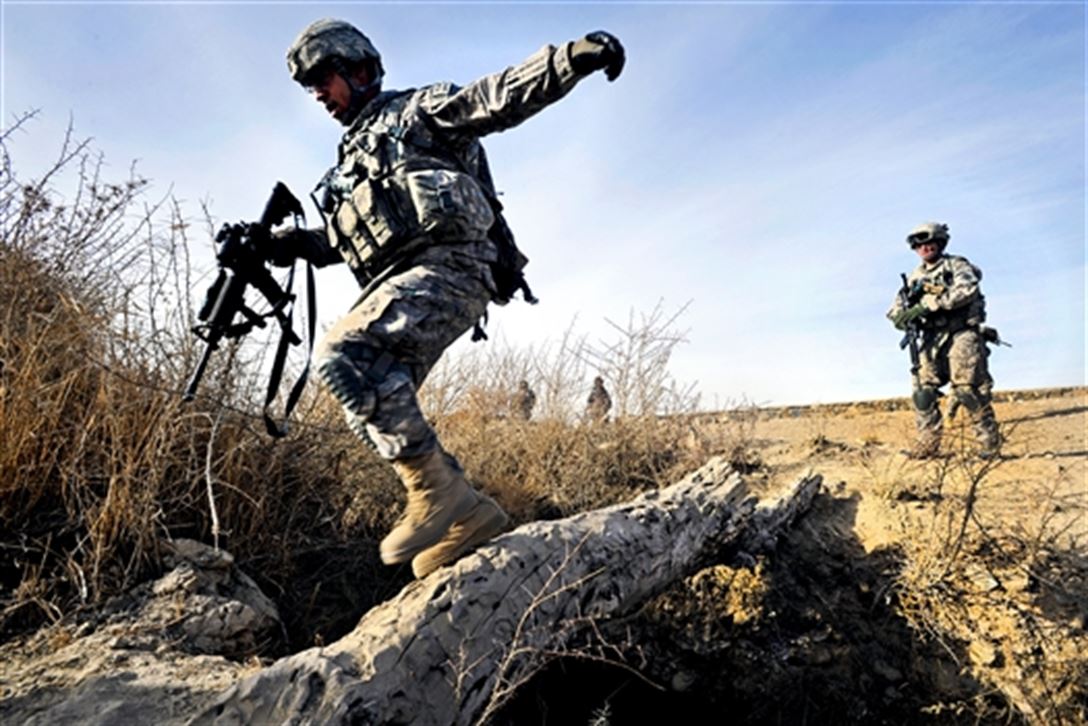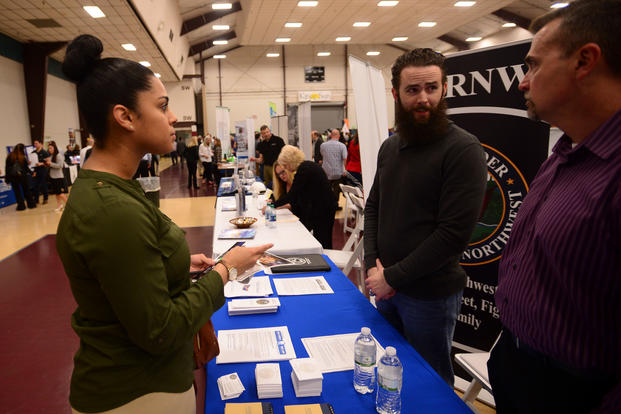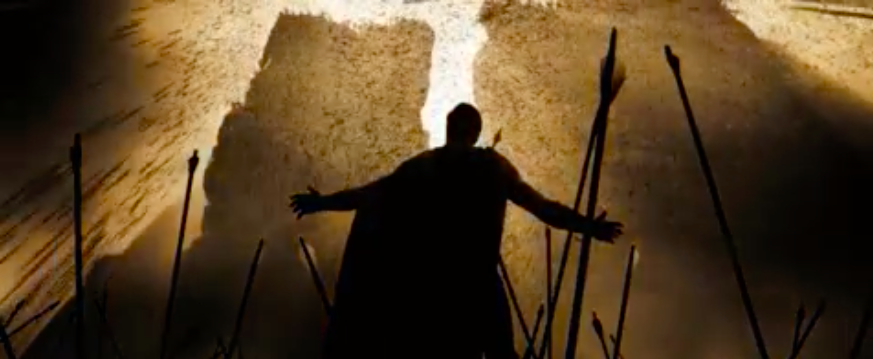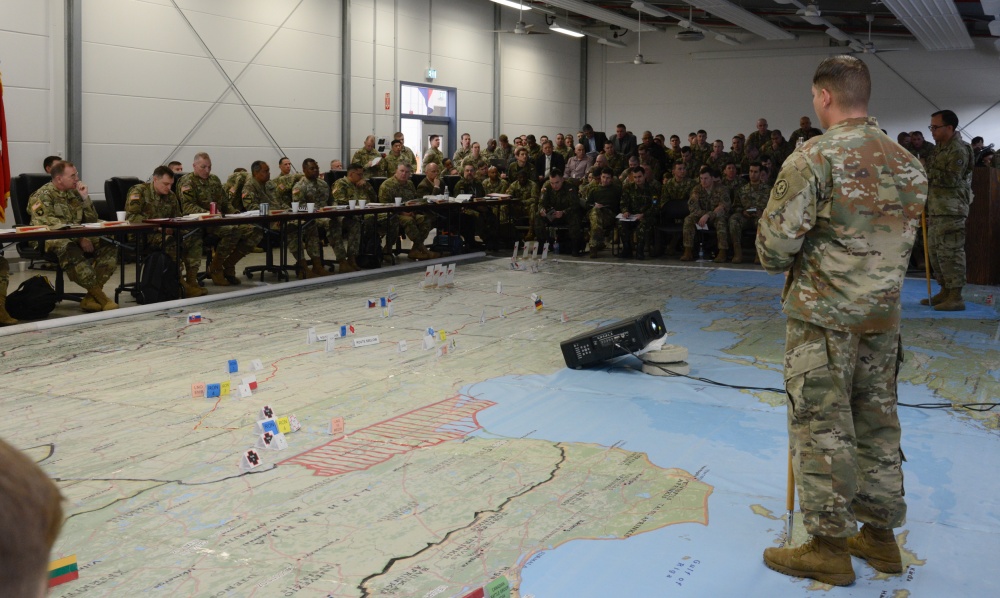
U.S. Soldiers brief a mission plan during a Rehearsal of Concept Drill, Feb. 24, 2017 (U.S. Army Photo by Spc. Emily Houdershieldt)
It’s something that I hear from nearly every veteran I work with in therapy. It’s one that I lived my life by for nearly 25 years. “I gotta be ready.” “I have to be prepared.” It’s the one phrase that I heard constantly, regardless of were I was stationed or what I was doing: “Hope for the best, but plan for the worst.”
The problem was, as time went on, we stop hoping for the best. We simply expected the worst thing that could happen and planned for it. In combat, it’s why we always had extra grenades and ammunition stashed everywhere. When not in combat, it’s why the phrase, “hey, the commander wants to see you” was never a good thing. We always expected it to be bad.
I noticed that this helped develop my cynical and pessimistic nature. I stopped being optimistic…hoping for the best…and just planned for the worst. It got to the point where I dismissed any hope or positivity, and simply said, “just wait…it’s all going to go to hell in a minute.” While protective…maybe…it’s not a very pleasant way to live, and can make someone no fun to be around.
And…it’s also necessary to acknowledge the reality of the situation. Blind optimism is as dangerous as constant pessimism. So instead of the phrase, “hope for the best, but plan for the worst,” I recommend that the clients I work with rephrase that in this way:
Hope for the best, and plan for all possible outcomes for the situation you’re in.
Danger in the Word “But”
One of the differences in this phrase is the use of the word “and” instead of “but.” It’s not, “hope for the best but plan,” it’s “hope for the best and plan.” I’ve discussed this before, when talking about how we need to focus on positive as much as we focus on negative. The word “but” negates everything that comes before it, and signals to the listener that the more important part of the sentence is coming up.
“I really like that dress…but…”
“I can tell you’re really working hard…but…”
“We really wanted to come over…but….”
Using the word “but” turns a positive into a negative. So, when we say we hope for the best but plan, what we’re really saying is that hoping of the best isn’t even in the picture. We might as well just plan for the worst and get it over with.
Plan for All Possible Outcomes
The second part of the reframed phrase is “plan for all possible outcomes” instead of “plan for the worst.” It may not be as short and memorable, but it gives us a subtle change to consider. If we simply plan for the worst, then that’s only what we’ll see. It’s looking at the whole range of options: what’s the best that could happen, what’s the worst that could happen, and what’s most likely going to happen. Take the phrase, “Hey, the commander wants to see you.” What’s the worst that could happen? The commander could punch you in your face and tell you that you’re getting kicked out of the military. That’s pretty much the worst that could happen…but is it very likely? On the other hand, the commander could say that you’ve been doing a great job and they’ve decided to meritoriously promote you. Also not very likely.
But you might be getting yelled at a bit. You might get held responsible for something that you didn’t do, or the crap is running downhill after the commander got their butt handed to them. Regardless, planning for all possible outcomes is not simply expecting the worst thing to happen and only planning for that. It’s acknowledging the reality that things may turn out good and they may turn out bad. We prepare for both of them and are ready either way.
For the Situation You’re In
This is another tricky one for many veterans. We sometimes plan for all possible outcomes that we have ever encountered…and if we’ve been in combat, those possible outcomes can be pretty extreme. I joke with my daughter about going to the mall on Black Friday: “You better not go, you’re gonna get tased.” I read an article about that. She reminds me that the article is from 2013. And the mall was in Philadelphia. I’m joking with her, of course, but it’s indicative of how we sometimes see danger, especially now. “I can’t let my kids play in the neighborhood…they may get abducted, or run over by a car, or shot.” Sure, we have to teach our kids about being safe…but do we live in a neighborhood where kids randomly get run over?
We have to plan for all possible outcomes of the situation we’re in. We can’t plan for all possible outcomes of every situation everywhere. When I left my house yesterday, I didn’t strap on my body armor and helmet and drive to work keeping an eye out for improvised explosive devices. Why? Because I’m not in Iraq, I’m in Colorado. I’m not in an environment that is so constantly dangerous that I need to be on edge all the time.
Reframe the Concept
As I mentioned above, it’s important to balance optimism…hope for the best…with realism…plan for all possible outcomes. Reframing the concept in this way takes the pessimism out of the equation and helps ground us in reality. It keeps us ready for whatever happens, good or bad, and helps us remain flexible. We don’t always have to be constantly on guard, but we also don’t have to be totally unprepared, either. A healthy mixture of both can lead to a stable and less stressful life.
[cl-flipbox link_type=”btn” link=”url:https%3A%2F%2Flp.constantcontact.com%2Fsu%2FFqcekHq|title:Sign%20Up%20Here” back_btn_label=”Receive Updates” back_btn_bgcolor=”#000000″ back_btn_color=”#59d600″ front_icon_image_width=”100%” front_title=”Sign Up for Updates” front_desc=”Enjoying this article? Click here to subscribe and get a free preview of Combat Vet Don’t Mean Crazy” front_bgcolor=”#2e964a” front_textcolor=”#ffffff” back_title=”Sign up here” back_desc=”Subscribe to get added to our content distribution list, and each week you’ll receive our newsletter that contains links to our weekly video, blog, and podcast.” back_bgcolor=”#32a350″ back_textcolor=”#ffffff” valign=”center”]
Do you want to help offset some of the costs of the Head Space and Timing Blog and Podcast? Want to show your appreciation and support? You can put some paper in the tip jar by going here or clicking the button below
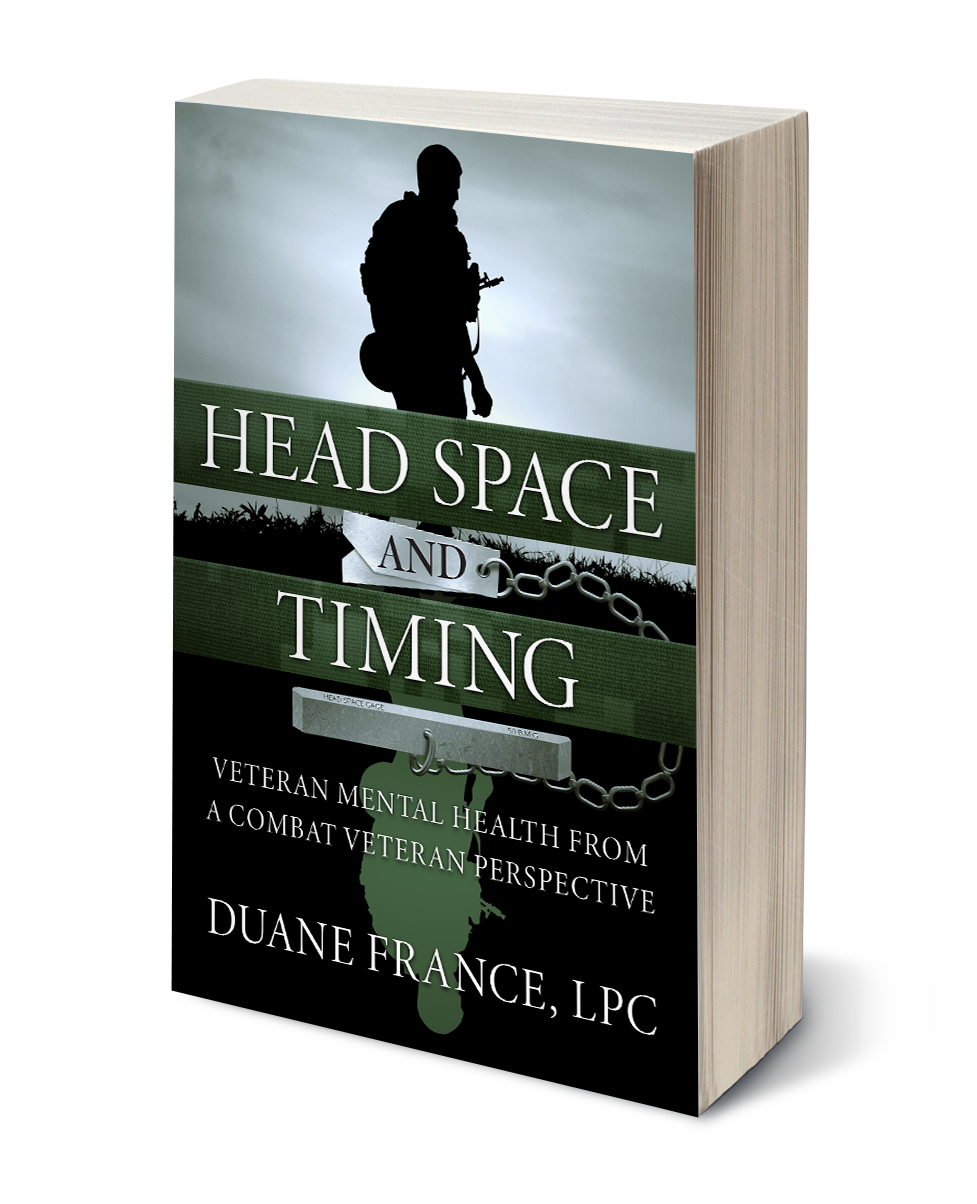 Want to learn more about veteran mental health? The first HS&T Book has recently been released in paperback. Click on the image to the left or this link to purchase the book. See what people are saying about it: This compilation of Duane’s work is key and essential to anyone working with Soldiers and Veterans. Duane provides a senior NCO’s perspective with unmeasurable experience and knowledge on top of his natural gift for seeing numerous levels of humanality and the challenges faced by those who have served our country. I highly recommend it! – A.C.
Want to learn more about veteran mental health? The first HS&T Book has recently been released in paperback. Click on the image to the left or this link to purchase the book. See what people are saying about it: This compilation of Duane’s work is key and essential to anyone working with Soldiers and Veterans. Duane provides a senior NCO’s perspective with unmeasurable experience and knowledge on top of his natural gift for seeing numerous levels of humanality and the challenges faced by those who have served our country. I highly recommend it! – A.C.
